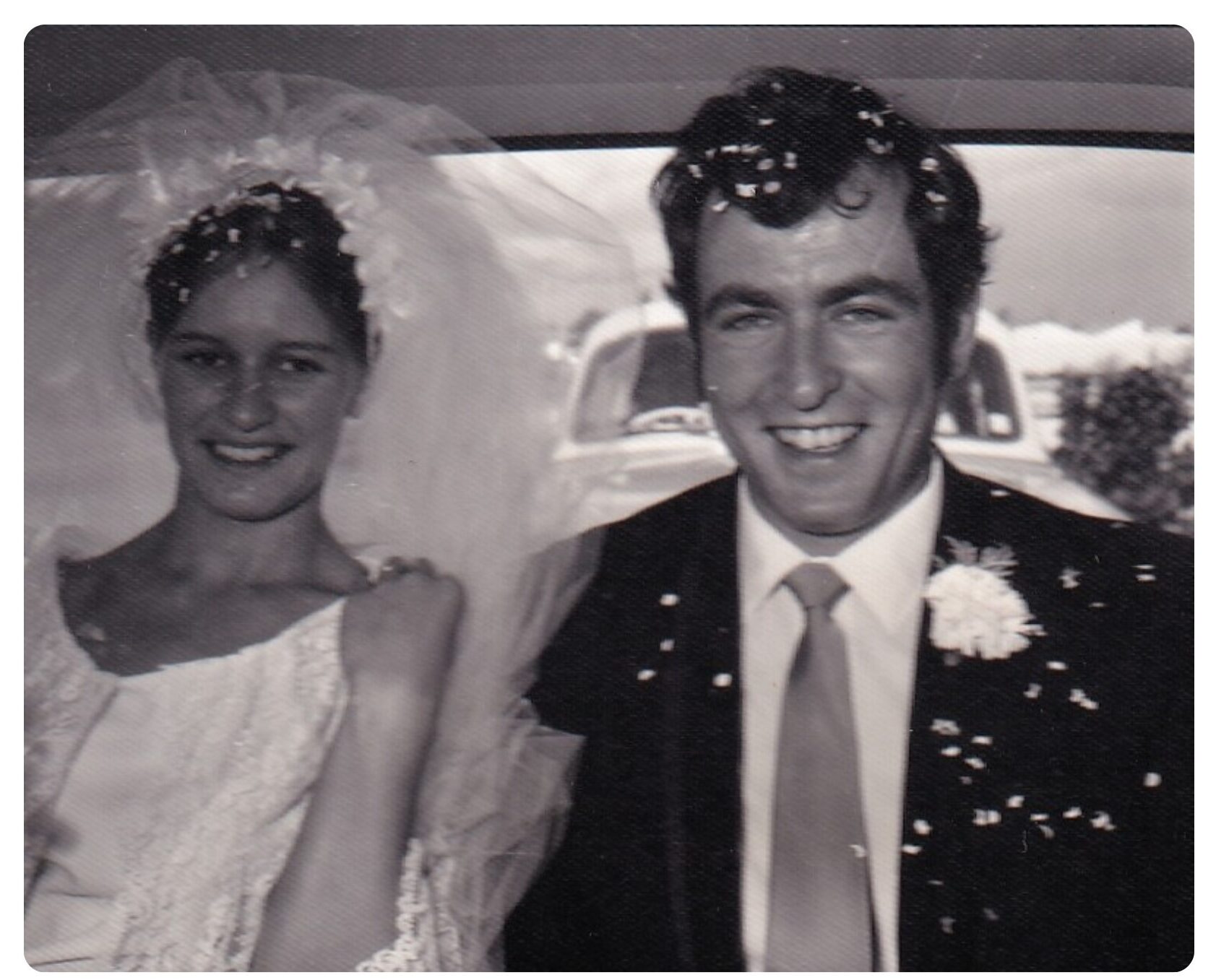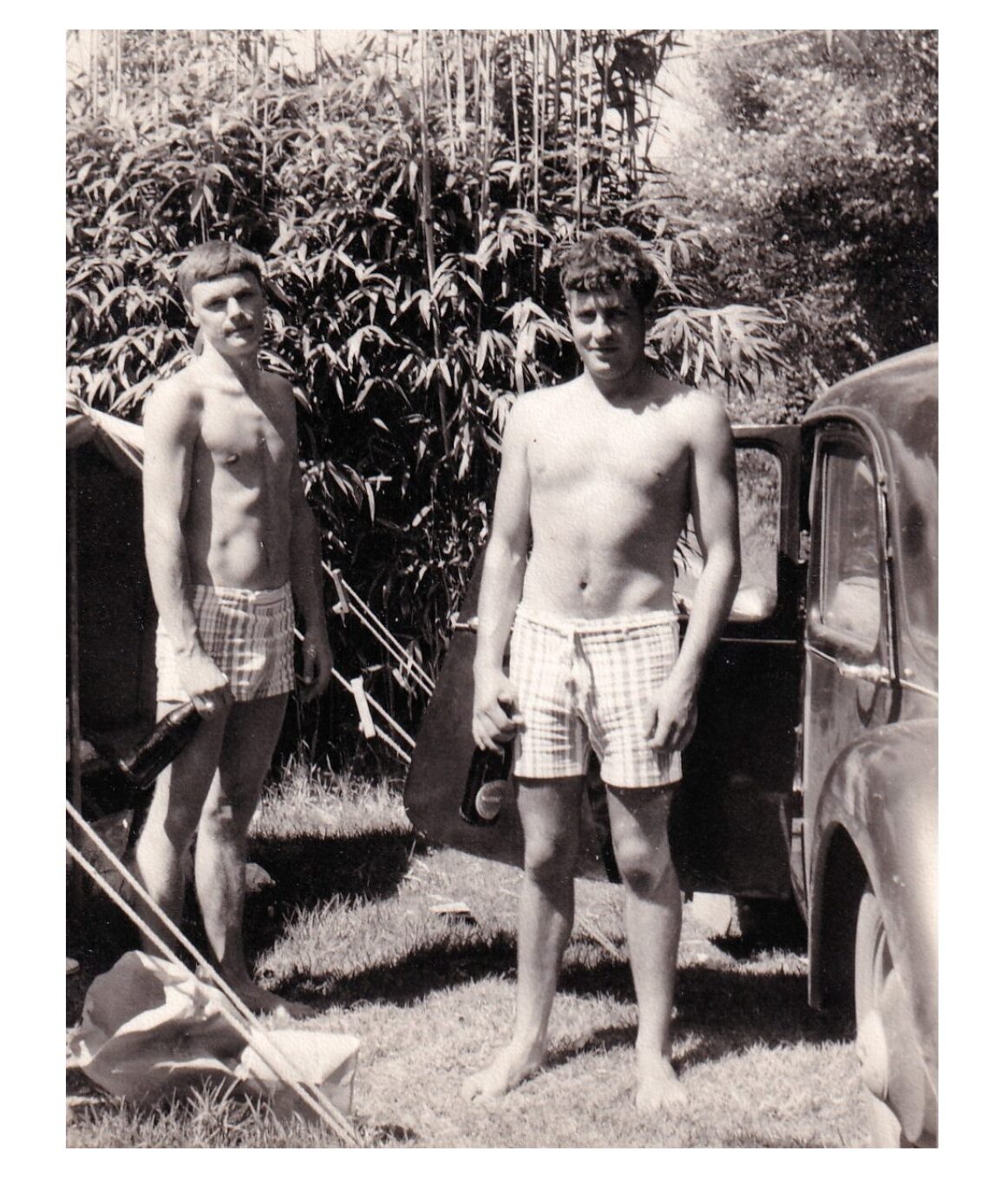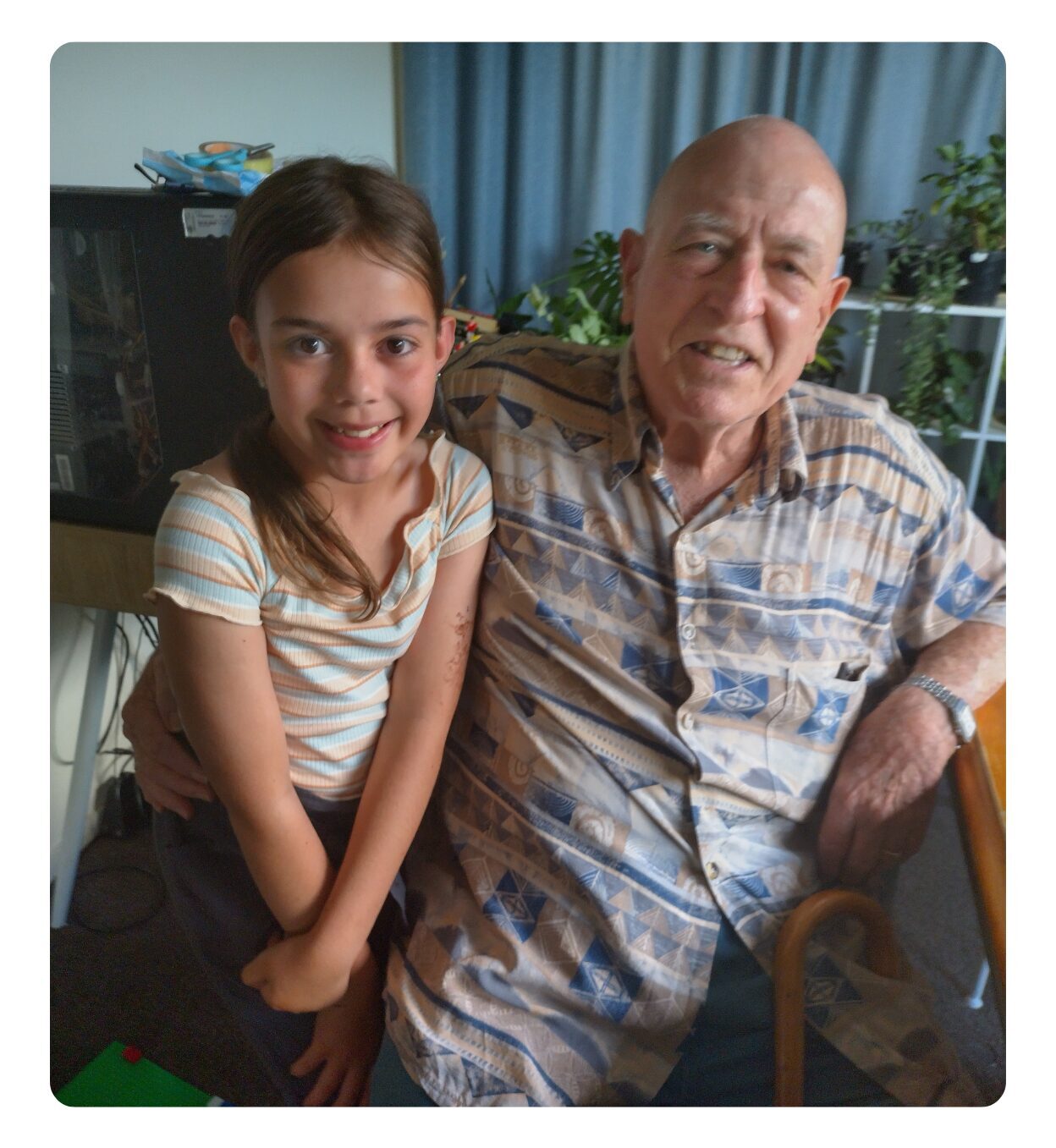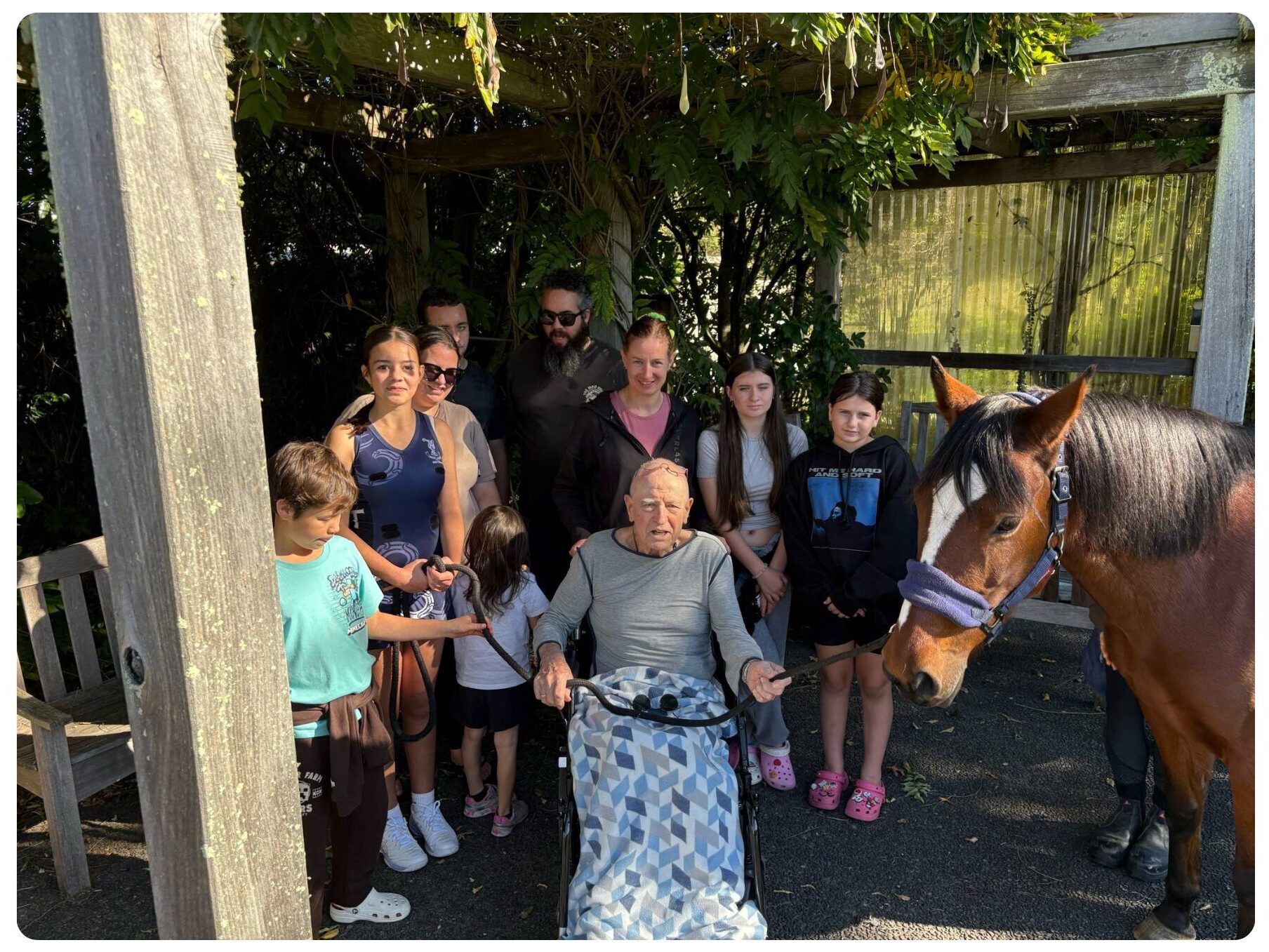They’d never stand on your foot, they wouldn’t even step in a puddle. They were gracious, calm, and relaxed.” Much like Alan himself. He worked hard, never complained, and carried a quiet strength that mirrored the animals he admired so much.
That same strength showed through his long battle with cancer. First diagnosed with bowel cancer in 2001, Alan endured surgery and six months of chemo and radiation before getting the all-clear.
Stephanie was only 11, and though she remembers how sick her dad became, what she remembers most was his toughness. He never faltered in showing up for his family.
Alan had been the stay-at-home parent, raising his children while his wife worked. Stephanie treasures that time as the foundation of their closeness. Throughout her life, Alan would leave her little notes, reminders, encouragements, or just thoughtful gestures. She still has the last one he ever wrote, stuck to her fridge: a message to say he’d kept the coffee warm and a warning not to trip over the cord as she was known for being a bit clumsy. Small words, but they captured the love and care he always showed
Almost his whole family gathered at Waipuna Hospice that afternoon. Outside Alan’s room stood a horse, calm and gentle, just like the ones he had grown up with. His grandchildren took turns riding, their laughter filling the air. Alan watched, smiling, surrounded by the people he loved most, reunited at last with the animals that had shaped his childhood.
We are currently facing a financial challenge, this one bigger and tougher than ever before. We face a huge gap between what the Government provides and what it costs to run our services. We’re determined to continue to provide our care free-of-charge, but the cost is high.
Today, I’m asking you to help us create more of these special moments for our families like Alan and Stephanie.
Your donation means more families can receive this same level of care – not just in the final days, but throughout the whole journey. It ensures someone else can stay at home with the people and memories they love. That no one has to do it alone.
We want to say a huge thank you to Stephanie for sharing her father’s story with us.
Please make a donation today. Your generosity ensures Waipuna Hospice can continue providing wrap-around compassionate care to those in our community who need it most



